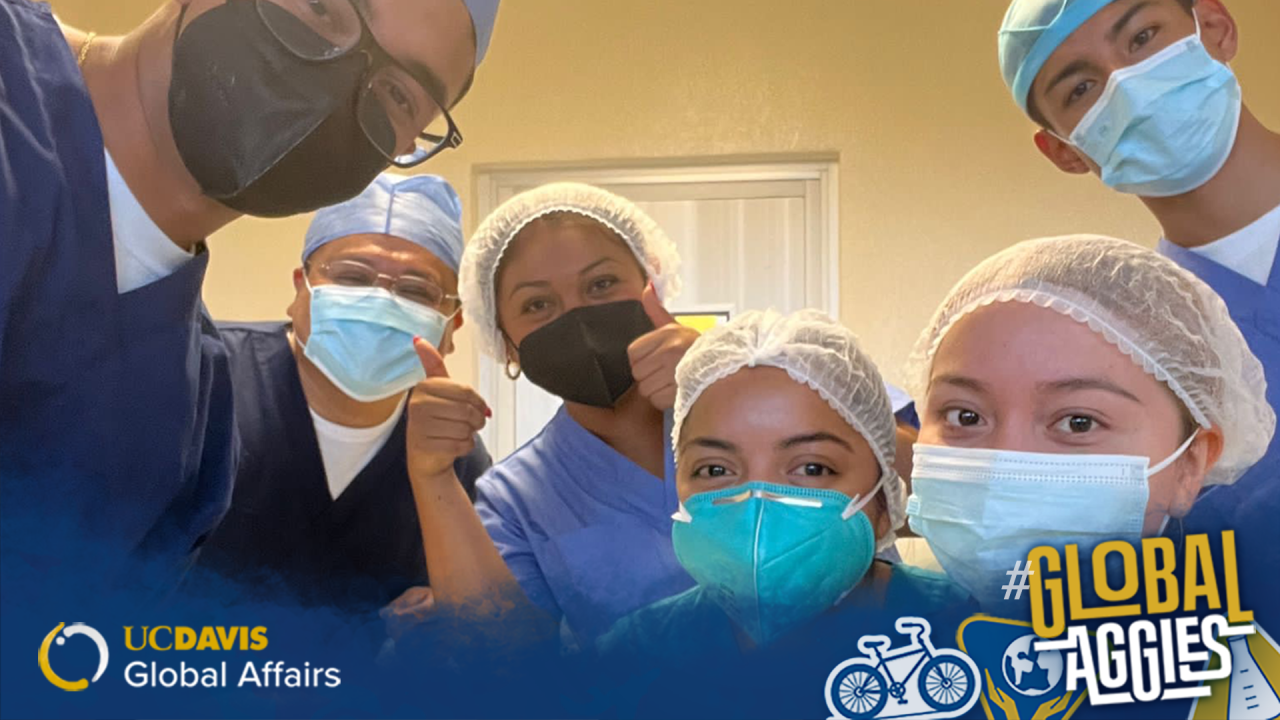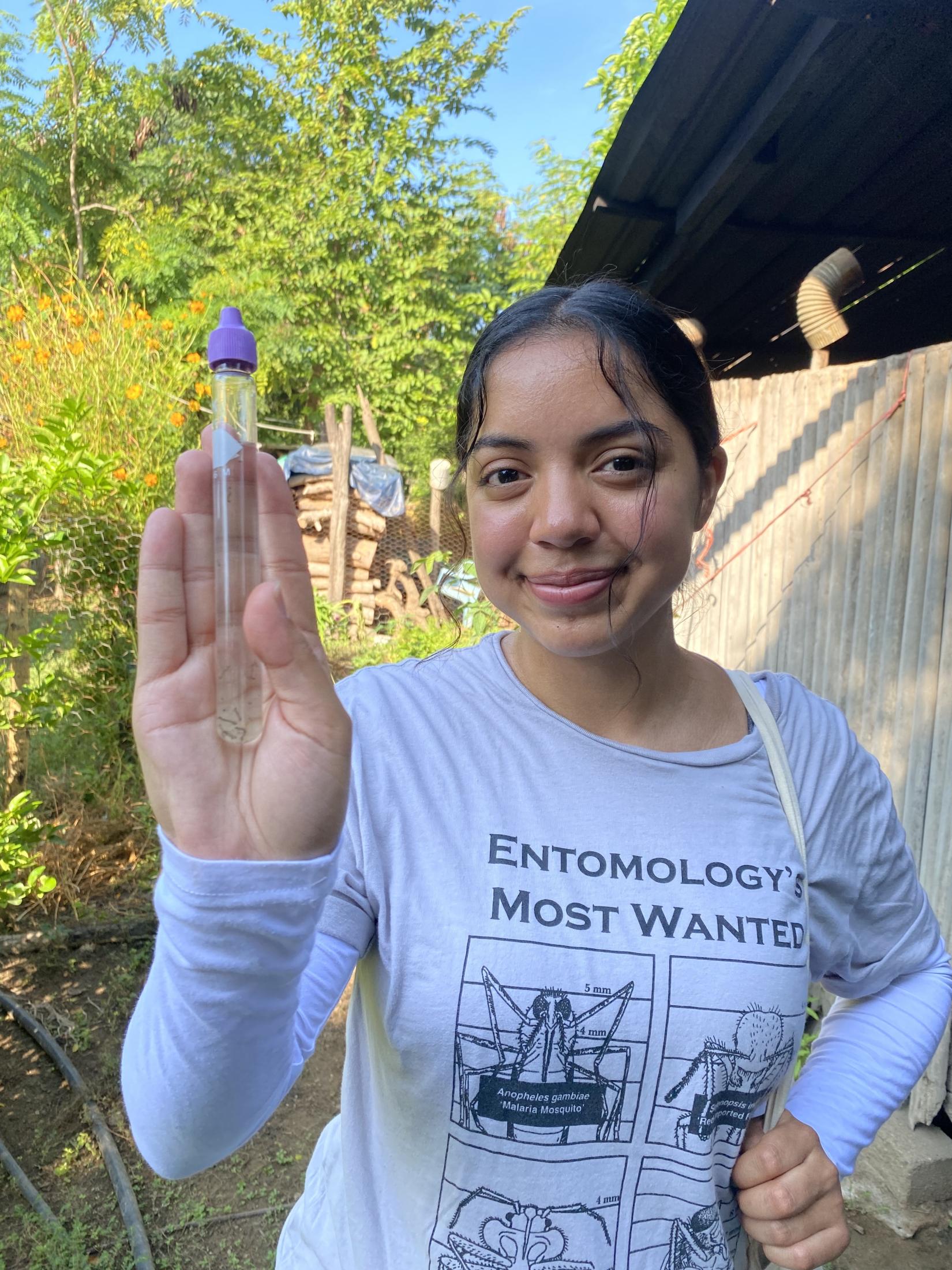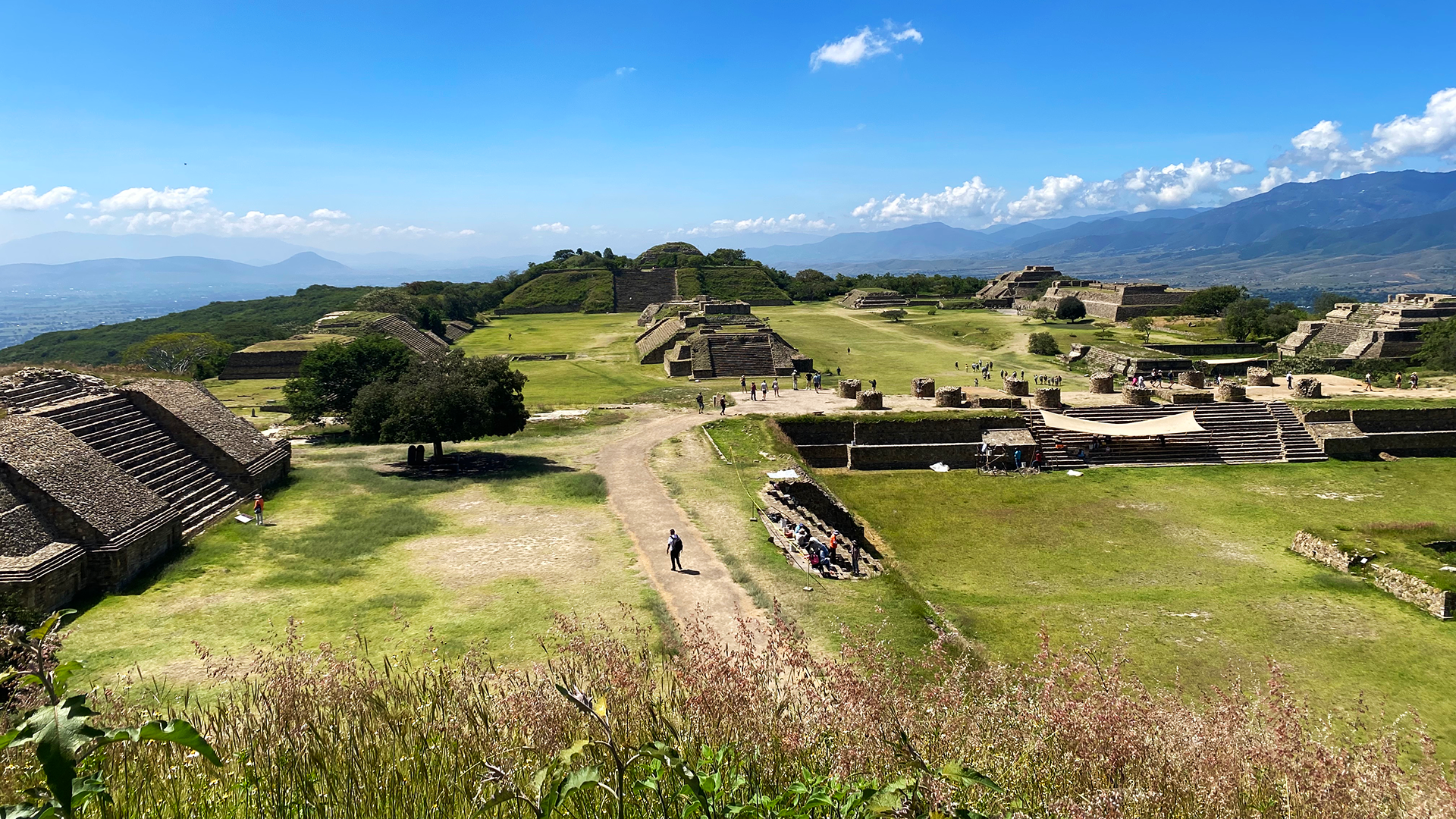
From Classroom to Clinic: My Internship Abroad in Oaxaca, Mexico
Name
Melanie Gallegos-Campos
Major/Minor
Global Disease Biology Major & Chicana/Chicano Studies Minor
Graduation Year
Alumni ‘23
Virtual or In-Person
In-Person
Program Title, Location, Duration
Quarter Abroad Mexico, “Latinx Health Internships in Oaxaca”

What motivated or led you to participate in your program?
I was motivated to participate in the Latinx Health Internship in Oaxaca, Mexico because it was an opportunity to gain valuable clinical experience through physician shadowing and clinical observation in local primary care clinics and government healthcare facilities. I was also hoping to improve my knowledge of medical terminology in Spanish and learn about global health issues. Overall, I was excited to spend a quarter abroad exploring Oaxaca and learning about its healthcare system.
What was your experience like in this program?
During my time abroad, I found it easy to connect with my host family and people in the local community—mainly because I’m fluent in Spanish, so communication was not a barrier for me. Everyone I met was welcoming and eager to share their culture by giving my program cohort recommendations or inviting us to visit local markets and restaurants in town. Under the guidance of our program instructors, Dr. Yvette and Dr. Monica, as well as the support of the coordinators at the Becari Language School and Child Health Family International, the program was very engaging, educational and interesting. Our cohort learned about health issues, public health initiatives and traditional medicine through guest lectures, hands-on activities, group presentations and field work. Overall, the program allowed me to enhance my skills in adaptability, intercultural communication, self-awareness and cultural humility.
What was the most challenging part of your program and the most rewarding?
The most challenging part of the program for me was feeling homesick and missing my friends and family. Although I made friends in my program and got along really well with my roommates, I found myself wishing all my friends from home were there so we could enjoy the experience together. It was also difficult to spend Thanksgiving away from my family since we typically spend that day together with extended family members too.
The most rewarding part of the program for me was gaining insight into the factors that influence the health of Latinos, particularly Mexicans and Mexican-Americans. The assigned readings were eye-opening and helped shape my understanding of social determinants of health and gave me a more well-rounded perspective on pursuing a career in medicine. This program has helped me envision a future career as a doctor, serving communities in underserved and disadvantaged areas.
What’s one of your most memorable experiences from your program?
From the Dia de los Muertos festivities to visiting local historical sites, I had many unforgettable experiences during my time in Oaxaca. One of the most memorable experiences for me was delivering a group presentation on reproductive health to a classroom of elementary school students. The school was located on the coast of Oaxaca in an underserved area where health education and healthcare resources were not as easily accessible. The community had higher rates of teen pregnancy, and for many girls, this created a barrier to education. In collaboration with the schools, we were given the opportunity to prepare presentations for the students to empower them with knowledge about reproductive and sexual health. I had so much fun getting the students engaged in topics about puberty, pregnancy, sexually transmitted diseases and family planning. I came away from the experience feeling fulfilled, knowing that the students had enjoyed learning about reproductive health and now felt more comfortable discussing the topics in an educational and age-appropriate way.

What was a typical day like on your program?
A typical week on the program involved attending lectures for Chicana/Chicano studies classes twice a week, attending Spanish class or an herbalism workshop twice a week in the evening time, and completing four-hour clinical rotations three times a week. On weekends, we sometimes had planned activities or field trips to help us learn more about Oaxaca and immerse ourselves in the culture. This included visiting archaeological sites, taking cooking or dancing classes and participating in festivities for Dia de los Muertos. Although each week was busy, I still found that there was plenty of time to complete group projects and class assignments.
The host family I was staying with provided breakfast and lunch every day to me and my roommates. For dinner, I would usually go out with the other students in my cohort and find new places to try local foods. Every day, my roommates and I would walk to class together and also accompany each other if we wanted to buy water, drop off laundry, or run any other errands in town. For clinical rotations, we were placed in pairs, so one of my roommates and I would take public transportation together to get to our clinic sites. The last few weeks of the program were in Puerto Escondido, and there, a typical day often involved swimming in a pool or visiting the beach. Overall, it was easy to adapt to the lifestyle in Oaxaca and I enjoyed that everything was walking distance because it helped me explore and become familiar with the local community.
What advice do you have for someone considering your program?
To anyone considering enrolling in the Latinx Health Internship program or any other global learning experience, I highly recommend it! I strongly believe it’s important to explore parts of the world and cultures that are different from what we are familiar with. As a first-generation student, I felt very supported by the professors and coordinators. I also felt encouraged by my cohort since many of us bonded over being transfer students, the first in our family to attend college, or from Spanish-speaking cultures. I had a very positive experience and studying abroad helped me grow as a student and as a person while preparing me to achieve my career goals. Overall, my advice is to take advantage of studying abroad and really embrace a new environment and lifestyle.
What was your biggest concern in regards to participating in the program?
My biggest concern about participating in this program was affording the cost of studying abroad. I am very grateful to have been a recipient of the Gilman Scholarship, UC Davis Study Abroad Award, and the Fund for Education Abroad Award. Thanks to the financial support from these organizations, I was able to cover my program fees, transportation to Oaxaca, and other costs, such as purchasing the books for the course-assigned readings.
My biggest advice to someone who’s hesitant to study abroad because of finances is to apply to the available scholarships because these organizations want to support students in their experiences abroad—particularly students from disadvantaged or minority backgrounds.
What is something you wish you knew before joining the program?
The program’s informational sessions and orientations all prepared me for participating in this program. The only thing I wish I had known before joining the program was how many souvenirs I would want to bring back because when it was time to come home, I had to leave many things behind and still pay extra for overweight luggage! Other students in my cohort also had to purchase extra luggage. I would recommend that you pack an extra bag or leave room in your suitcase when packing for study abroad so that you have enough room for souvenirs and other things you might buy on your trip.
How do you think your program experiences will benefit you in the future?
My experience on this program has been very impactful and beneficial for me in terms of my goals. Completing the coursework in Chicana/Chicano Studies allowed me to obtain a minor degree in the subject, and the clinical and public health experience I gained is valuable to me as a pre-med student. When applying to medical schools, I know that my experiences abroad will help me explain my passion for healthcare, medicine and providing care to diverse populations. Overall, I’m so grateful I had the opportunity to study abroad and it’s an experience I will always cherish and look back on.
About the Global Learning Hub at UC Davis
As a part of Global Affairs, the Global Learning Hub aims to inspire and advance global curiosity, understanding, and engagement.
Through the Global Learning Hub, every UC Davis student can find global learning opportunities on campus, in the region, virtually, and internationally. The Hub offers global learning programs, workshops, and resources that enhance all UC Davis students’ academic and career pursuits through four broad areas of opportunities: Community Engagement, Global Skills and Leadership, Internships and Research, and Study Abroad. UC Davis is committed to preparing the next generation of global problem solvers and change makers. As such, we aim to prepare our undergraduate, graduate, and professional students to solve global challenges collaboratively, equitably, and sustainably.